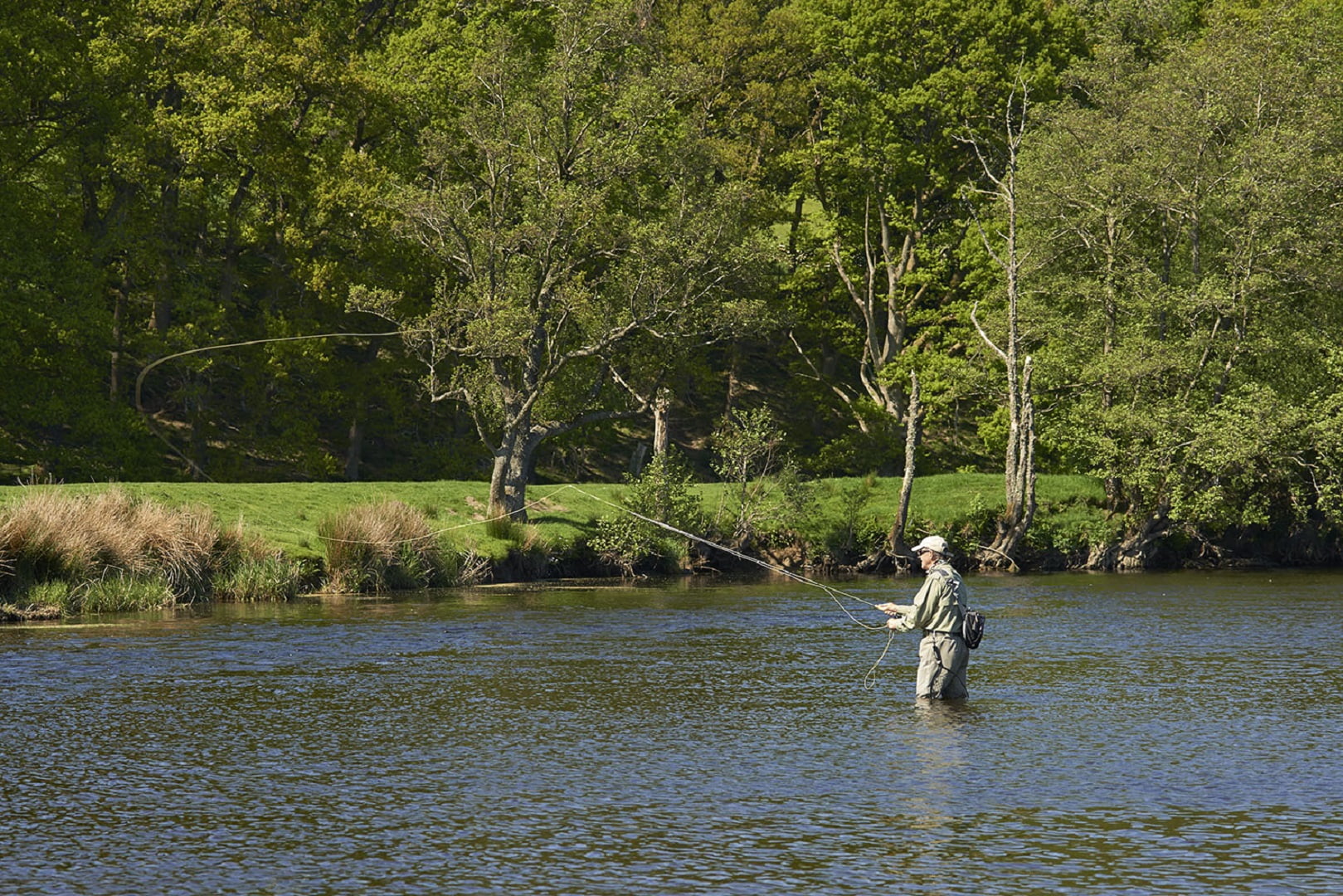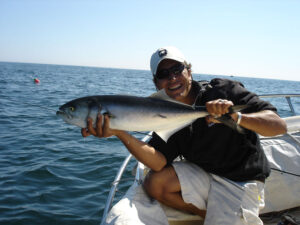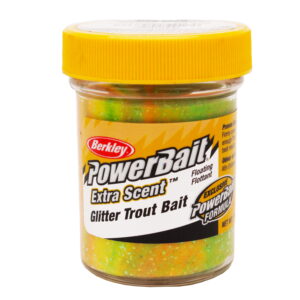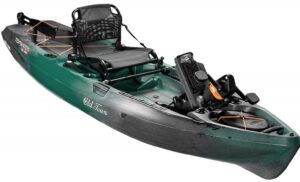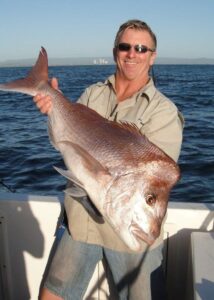Are you an avid angler looking for new and exciting fishing opportunities in the United Kingdom? Look no further than river fishing! With its diverse range of fish species, stunning landscapes, and thrilling challenges, river fishing in the UK offers an unforgettable experience for both beginners and seasoned anglers. In this comprehensive guide, we will explore the top fishing spots, popular techniques, and essential tips to help you make the most of your river fishing adventures.
1. Introduction to River Fishing in the UK
River fishing has a long and rich tradition in the UK, with its rivers and waterways providing endless opportunities for anglers. Whether you prefer coarse fishing or fly fishing, the UK’s rivers offer a variety of species, including trout, salmon, pike, perch, and more. Each river has its own unique characteristics, making every fishing trip a new and exciting challenge.
2. The Best River Fishing Spots in the UK
2.1 The River Tweed
The River Tweed, located on the border between Scotland and England, is renowned as one of the best salmon fishing rivers in the world. With its picturesque surroundings and excellent fishing conditions, the River Tweed attracts anglers from all over the globe. The river is known for its large salmon runs, especially during the autumn months.
2.2 The River Wye
The River Wye, flowing through Wales and England, is another popular destination for river fishing enthusiasts. Known for its breathtaking beauty and diverse fish population, including salmon, trout, and grayling, the River Wye offers a wide range of fishing opportunities. The river is particularly famous for its trout fishing, with its upper reaches being a favorite spot among fly anglers.
2.3 The River Tay
The River Tay in Scotland is famous for its Atlantic salmon fishing. It is the longest river in Scotland and offers excellent conditions for both fly fishing and spinning. With its stunning scenery and the chance to catch large salmon, the River Tay is a must-visit destination for any serious angler.
2.4 The River Severn
The River Severn, the longest river in the UK, is a haven for coarse fishing enthusiasts. It is home to a wide range of fish species, including barbel, chub, pike, and perch. The river provides excellent opportunities for both float and feeder fishing, making it an ideal spot for anglers of all skill levels.
2.5 The River Test
The River Test, located in Hampshire, is famous for its trout fishing. Known as the birthplace of modern fly fishing, the River Test offers challenging yet rewarding angling experiences. Its crystal-clear waters and abundant insect life make it a paradise for dry fly fishing enthusiasts.
3. Essential River Fishing Techniques
3.1 Fly Fishing
Fly fishing is a popular technique used in river fishing, especially for trout and salmon. It involves casting a lightweight artificial fly using a specialized fishing rod and line. Learning to cast accurately and present the fly naturally is crucial for success in fly fishing. Different types of flies, such as dry flies, nymphs, and streamers, can be used depending on the target species and prevailing conditions.
3.2 Coarse Fishing
Coarse fishing is a broad term that encompasses various fishing techniques aimed at catching non-trout and non-salmon species. It includes methods such as float fishing, ledgering, and feeder fishing. Coarse fishing is popular for targeting species like carp, bream, roach, and tench. Each technique requires specific tackle and bait, so it is essential to understand the preferences and habits of the target fish.
3.3 Spinning
Spinning is a versatile technique that involves casting and retrieving a lure to attract predatory fish. It is commonly used for species like pike, perch, and zander. Spinning requires a spinning rod and reel, along with various types of lures, such as spoons, spinners, and soft plastics. Mastering the art of lure presentation and retrieval is key to enticing strikes from these aggressive predators.
4. Fishing Regulations and Licenses
Before embarking on your river fishing adventure, it is essential to familiarize yourself with the fishing regulations and obtain the appropriate licenses. The rules and regulations may vary depending on the location and target species. In the UK, the Environment Agency is responsible for issuing fishing licenses. You can easily apply for a license online or purchase it from authorized retailers.
5. Tips for Successful River Fishing
5.1 Research the River
Prior to your fishing trip, take the time to research the river you plan to fish. Learn about the fish species present, their feeding habits, and preferred habitats. Understanding the river’s flow, depth, and structure will give you valuable insights into where the fish are likely to be found.
5.2 Study the Weather and Water Conditions
Weather and water conditions play a significant role in river fishing success. Pay attention to factors such as water temperature, clarity, and flow rate. Different fish species have specific preferences regarding these conditions. For example, trout tend to be more active in cooler water, while pike may be more active in warmer temperatures.
5.3 Use the Right Tackle and Bait
Using the appropriate tackle and bait is crucial for enticing fish to bite. Match your tackle to the target species and fishing technique. Ensure that your fishing line is strong enough to handle the fish you expect to catch. Additionally, choose bait that is suitable for the target species and mimics their natural food sources.
5.4 Be Patient and Persistent
River fishing can be challenging, requiring patience and persistence. It may take time to locate the fish and figure out their feeding patterns. Stay focused and try different techniques and locations until you find what works. Remember, the thrill of a successful catch is worth the effort!
5.5 Respect the Environment
As responsible anglers, it is essential to respect the environment and practice sustainable fishing. Follow catch and release guidelines whenever possible, especially for endangered species. Dispose of any waste properly and leave the riverbank as you found it, ensuring its beauty and biodiversity are preserved for future generations.
Conclusion
River fishing in the UK offers a world of exciting opportunities for anglers of all skill levels. From the majestic rivers of Scotland to the tranquil waterways of England and Wales, each fishing spot has its own unique charm. By mastering essential techniques, understanding the river’s characteristics, and respecting the environment, you can embark on unforgettable fishing adventures and create lasting memories. So, grab your fishing gear, get out there, and experience the thrill of river fishing in the UK!
FAQs (Frequently Asked Questions)
1. Do I need a fishing license for river fishing in the UK?
Yes, you need a fishing license to fish in rivers in the UK. The Environment Agency issues fishing licenses, which can be easily obtained online or from authorized retailers.
2. What is the best time of year for river fishing in the UK?
The best time of year for river fishing in the UK depends on the target species. Spring and summer are generally good for trout and coarse fishing, while autumn is ideal for salmon fishing. However, fishing can be enjoyable year-round, with each season offering its own unique challenges and rewards.
3. What are some recommended fishing spots for beginners?
For beginners, the River Wye and the River Test are excellent choices. Both rivers offer a variety of fish species and have fishing spots suitable for anglers of all skill levels. Hiring a local guide can also be beneficial for beginners to learn the ropes and discover the best fishing spots.
4. Is river fishing suitable for families?
Yes, river fishing can be a great activity for families. Many rivers in the UK have family-friendly fishing spots with facilities such as picnic areas and toilets. It provides an opportunity to spend quality time together in nature and introduce children to the joys of fishing.
5. Can I eat the fish I catch in rivers?
Yes, you can eat the fish you catch in rivers, but it is essential to check the local fishing regulations and any specific guidelines for the river you are fishing in. Some rivers may have restrictions on certain fish species or enforce catch and release policies to preserve fish populations.
Summary
River fishing in the UK offers a wide range of fishing opportunities, from salmon fishing in the River Tweed to trout fishing in the River Test. With the right techniques, tackle, and knowledge of the river’s characteristics, anglers can enjoy thrilling fishing experiences and catch a variety of fish species. Remember to obtain the necessary fishing licenses, respect the environment, and follow sustainable fishing practices. Whether you are a beginner or an experienced angler, river fishing in the UK is sure to provide countless memorable moments and an escape into nature’s beauty.

